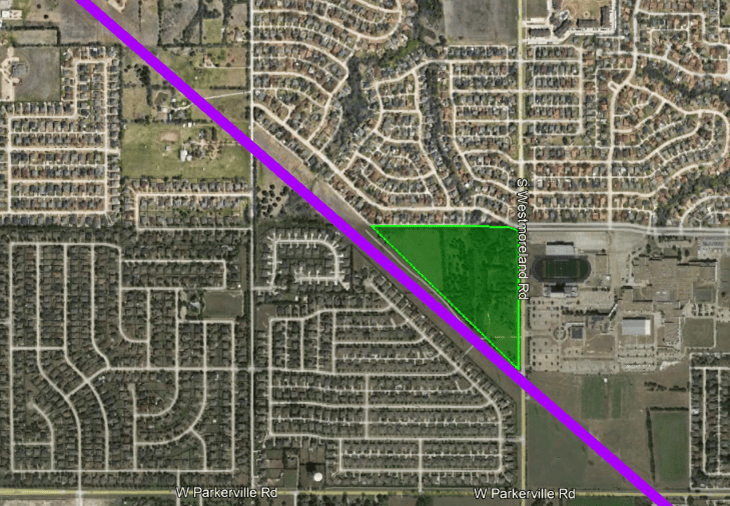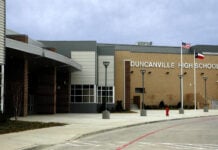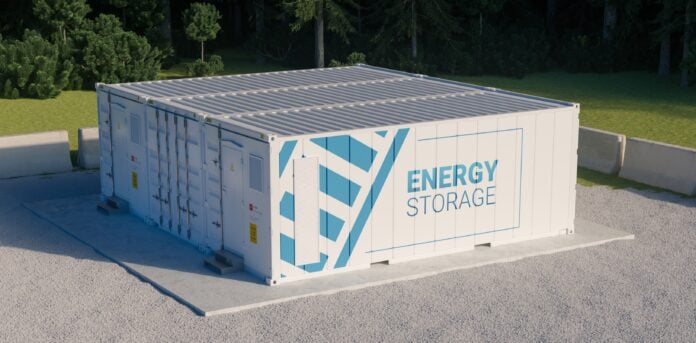Folks throughout Texas remember the frigid days of power outages in some of the coldest weather the state has seen in a long time in February of 2021. As it has become known, the Texas Grid remains in question during extreme cold and heat, to the point that officials regularly ask citizens to make significant adjustments to their heating and cooling systems.
Vesper Energy is helping with the situation. While it won’t be a complete fix for the entire state, it could make a big difference in DeSoto and likewise take a step in helping the grid problem.
Vesper is bringing a Battery Energy Storage System (BESS) to DeSoto. A BESS is a type of energy storage system that uses batteries to store and distribute energy in the form of electricity at a later time.
BESS systems are used in electricity grids and other applications such as electric vehicles, solar power installations, and smart homes. The energy stored can be drawn upon when needed to meet various demands for power across different applications.
BESS units are about 10-12 -feet high and look similar to shipping containers in appearance.
“Without a way to store power, electricity must be used the instant it’s generated. Our country’s electrical grids are carefully managed by grid operators that constantly ensure the electricity supply precisely meets demand,” explained Alex Rohr, Community Affairs Manager for Vesper Energy. “Under normal circumstances, this is accomplished by the grid operator telling individual power plants to increase or decrease their electricity production, sometimes on a minute-by-minute basis.
“Energy storage offers grid operators on-demand power that can respond almost instantaneously when needed. In addition, energy storage makes it possible to save extra power generated during the day and release it when demand increases in the evening hours, helping to reduce or avoid price spikes and supply shortfalls.
Rohr said the project will provide at least $50 million in new tax revenue to the City of DeSoto, DeSoto ISD, and Dallas County over the project’s 35-year lifespan without requiring many public services in exchange.
He noted that another significant advantage is engagement with community stakeholders.
“Partnership is a core value at Vesper Energy. Engaging stakeholders and building relationships with project communities, such as DeSoto, is how we do business,” Rohr said. “To build this trust with the community, we practice steady and transparent communication. I would encourage anyone who has questions about the project or wants to get engaged with the work to reach out to me at alex.rohr@vesperenergy.com.”
On Tuesday, Feb. 6, the company held a community meeting at Life Center United Methodist Church, and they are planning similar future activities.
“Thank you to everyone who joined us at the church to learn about the project and share feedback. Community input has been useful in shaping the project, and we look forward to more discussions with residents,” Rohr said.
He also said Vesper is proposing to donate land for a community park near the project’s South Westmoreland Road boundary to be a good neighbor and partner with the City of DeSoto.
Rohr explained why DeSoto was chosen as a BESS site.
“When our team decides the location to develop a project, we look at the big picture and identify areas that need added grid reliability. Then, we identify the infrastructure necessary to connect a BESS project to the electric grid, such as a substation or a major electrical corridor,” he said. “In this case, the project would be located on land that is currently vacant, directly adjacent to critical transmission lines serving DeSoto and Dallas County.”
The project will be located off South Westmoreland Road and Eagle Drive. The project design is still in development, but Rohr said the team plans a robust buffer to minimize any visual impacts to project neighbors, including security fencing.

We have introduced the project to city staff and learned about the city’s process. This project will need approval from the DeSoto Planning and Zoning Commission and DeSoto City Council. Currently, our team is taking feedback from stakeholders before submitting our permitting requests to the city of DeSoto. They hope to begin construction in 2025 and be operational in 2026.
Emerald Hill Energy Storage (the project’s name) will be a utility-scale energy storage project connecting to Oncor transmission lines serving DeSoto and Dallas County. Still, energy rates are not as simple as one source providing energy directly to specific homes or businesses. However, Rohr said adding energy storage to the Texas grid has already been proven to reduce price spikes and provide more affordable energy to Texas homes and businesses.
For example, on a specific day this past August, with Texas facing record power demand, BESS helped reduce wholesale prices by 46% across the ERCOT system.
“The Emerald Hill Energy Storage project will help in that bigger transition to a more stable and secure grid,” he said.
Rohr noted another BESS is located just east of DeSoto in Kaufman County, though owned and operated by another company.
“Texas is a leader in BESS, and as more BESS have come online over the last couple of years, they have played a significant role in keeping the Texas grid secure, especially during extreme weather,” he said.














